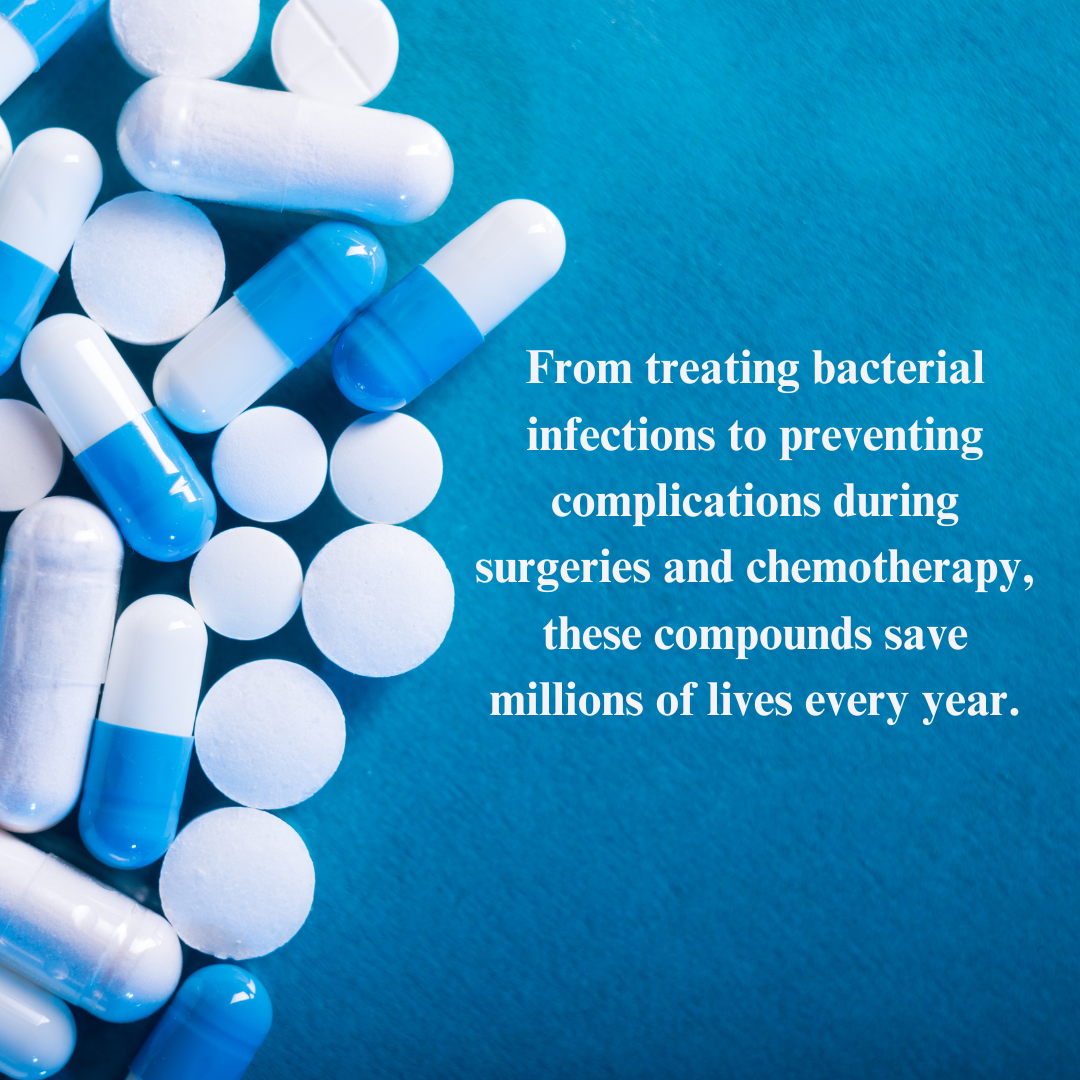The Antimicrobial Crisis: Why We Need to Act Now
November 20, 2024

Antimicrobials are one of humanity's greatest scientific achievements, quietly defending us against countless infections and enabling modern medicine as we know it. From treating bacterial infections to preventing complications during surgeries and chemotherapy, these compounds save millions of lives every year. However, their misuse and overuse threaten to erode their effectiveness, putting global health at risk.
This comprehensive guide reveals what antimicrobials are, why they are indispensable, and the critical information everyone needs to know to use them responsibly.
What Are Antimicrobials?
Antimicrobials are agents that kill or inhibit the growth of microorganisms, including bacteria, viruses, fungi, and parasites. They are categorized into several types:
Antibiotics: Target bacteria (e.g., penicillin, amoxicillin).
Antivirals: Combat viruses (e.g., oseltamivir for influenza, remdesivir for COVID-19).
Antifungals: Address fungal infections (e.g., fluconazole for yeast infections).
Antiparasitics: Treat parasitic infections (e.g., ivermectin for river blindness).
These agents are foundational to modern healthcare, helping treat infections, prevent disease spread, and enable medical interventions like surgeries and chemotherapy.
Why Are Antimicrobials Indispensable?
Imagine a world without antimicrobials: minor cuts could turn fatal, surgeries would become exceedingly dangerous, and diseases like tuberculosis would once again ravage populations unchecked. Antimicrobials play critical roles such as:
Preventing Infections: Antimicrobials protect surgical wounds and immune-compromised individuals.
Curing Diseases: From pneumonia to malaria, they offer cures for life-threatening infections.
Supporting Medical Advances: Procedures like organ transplants and cancer treatments rely on antimicrobials to manage infection risks.
The Antimicrobial Crisis: A Global Health Threat
While antimicrobials have been lifesaving, their misuse has led to antimicrobial resistance (AMR), where microorganisms evolve to withstand treatments.
Causes of AMR
Overuse in Medicine: Prescribing antibiotics for viral infections like colds.
Misuse in Agriculture: Overusing antibiotics in livestock farming.
Improper Disposal: Environmental contamination from improper disposal of medications.
Consequences of AMR
Treatment Failures: Common infections like urinary tract infections (UTIs) become harder to treat.
Medical Setbacks: Increased risks during surgeries and cancer treatments.
Economic Strain: Higher healthcare costs due to prolonged illnesses and expensive alternative treatments.
How to Use Antimicrobials Responsibly
For Individuals
1. Follow Prescriptions: Take only when prescribed by a qualified healthcare provider.
2. Complete the Course: Don’t stop taking antimicrobials early, even if you feel better.
3. Avoid Sharing Medicines: What works for one person may not work for another.
For Communities
1. Promote Hygiene: Prevent infections with handwashing and clean environments.
2. Vaccination: Reduce the need for antimicrobials by preventing diseases.
3. Spread Awareness: Educate others about the dangers of misuse.
For Policymakers and Healthcare Systems
1. Monitor Resistance: Invest in tracking AMR patterns.
2. Support Research: Encourage the development of new antimicrobials and alternatives.
The Role of Everyday Habits in Safeguarding Antimicrobials
Even small actions can make a big difference:
Wash Your Hands Regularly: Prevent infections before they start.
Store Medicines Safely: Avoid accidental or unauthorized use.
Dispose of Medications Properly: Prevent environmental contamination by returning unused medicines to pharmacies.
Antimicrobials and the Future of Global Health
To ensure antimicrobials remain effective for generations to come, collaboration is essential. Patients, healthcare providers, governments, and industries must work together to instill responsible use and innovation.
The fight against AMR is a fight for humanity. By understanding and respecting the role of antimicrobials, we preserve one of the most precious tools in our health arsenal—ensuring a future where minor infections remain just that: minor.
Let’s act now to protect these invisible allies. Every informed choice strengthens the shield they provide, safeguarding lives and advancing health worldwide.
As you navigate the seasons of your own life, remember that growth, wellness, and joy are within reach. The Seasons of Growth 2025 Healthcare Calendar is here to guide you, inspire you, and support your journey. Packed with tools for reflection, cultural insights, and wellness tips, it’s more than a calendar—it’s a companion for a fulfilling year.
Start your journey today. Click here to get yours now on Amazon.
Your insights matter! Be our extra eyes—share your feedback and help us improve.